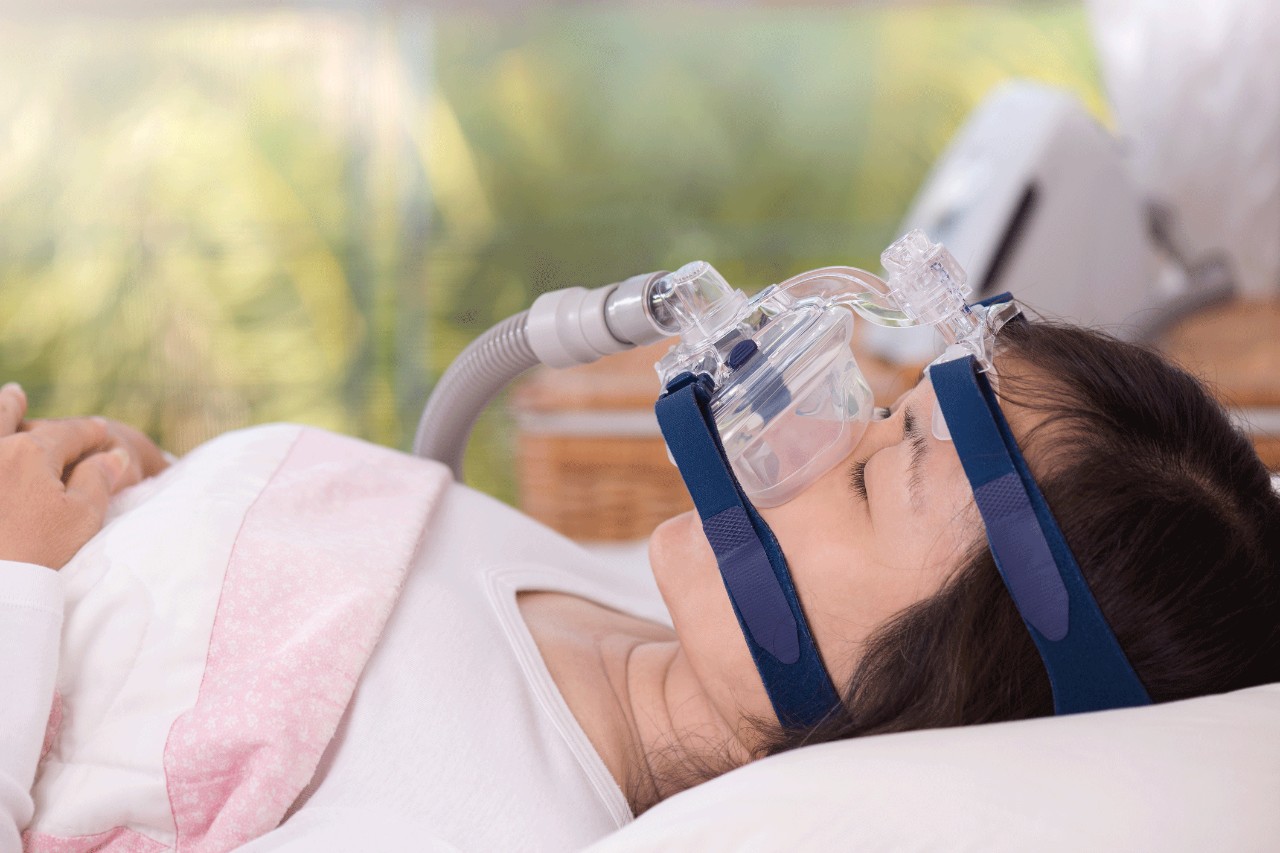February 02, 2018
Don’t Let Sleep Apnea Keep You Up at Night

Several years ago, sleep apnea entered my lexicon. Perhaps a more telling statement would be that it entered my bedroom. I hadn’t heard much about the condition until my husband began feeling fatigued during the day. Despite sleeping for the typical seven to eight hours a night, he would still feel sleepy during the day and wind up taking several catnaps on the couch. As we discussed his fatigue, he confessed that he never felt rested after waking up in the morning, and was worried that he’d entered some kind of vicious sleep cycle that compelled him to nap during the day to make up for the solid shuteye he was missing at night.
YOU MIGHT ALSO LIKE: More about Sleep Care
It was at this point that I began to connect the dots. I had noticed that he had started snoring and breathing loudly during the night, and often seemed to have trouble getting comfortable amidst our copious pillows and blankets. In order to avert my own fatigue, I had even taken to moving to the couch when his snoring became too much for my tender ears. (A good night’s sleep is one of my favorite things, after all.)
Perhaps, I suggested to him, he was suffering from sleep apnea. We looked into it, and all of the symptoms seemed to line up – feeling fatigued, loud snoring, and lapses in breathing. Risk factors for the condition include being male, overweight, and over 40; having a large neck, tonsils, or tongue; and having a family history of sleep apnea – all boxes my husband could check off.
Losing weight – the only risk factor he could control – would take time; so, in the meantime, he went to his primary care doc to discuss treatment options. The doctor suggested doing a sleep clinic to determine the severity of his sleep apnea and whether he could benefit from a CPAP machine, a small device worn throughout the night that provides continuous positive airway pressure (CPAP), ultimately helping him to get a restful night’s sleep.
We found the sleep clinic cost prohibitive (and frankly something my husband didn’t think would result in truly conclusive findings, given his night-owl penchant for staying up until the wee hours of the morning), and kept hunting for other treatments. He ultimately found the answer in an anti-snoring mouthpiece recommended by his mom, a fellow sufferer. The mouthpiece is sold under different brands and retails for between $40 and $100 – well within our medical budget.
I’m happy to report we’ve both been sleeping well since he started wearing it. And he now has enough pep in his step to take daily walks with me, which I hope will ultimately help him shed a few pounds and lessen his nighttime troubles. I know the saying “Happy Wife, Happy Life” is popular, but I find that “Well-rested Wife, Happy Life” is just as valid!


